

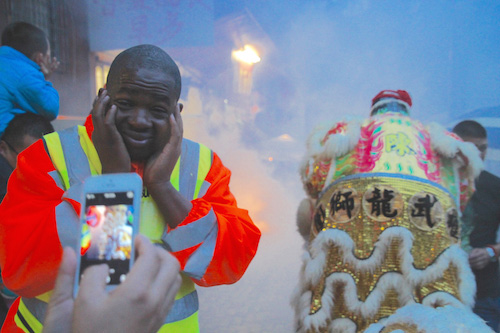
The dragon dance team is accompanied by security during their performance at the Chinese New Year celebration event in Johannesburg, South Africa. (Picture: People’s Daily Online / Zhang Jiexian)
Asthe rest of the world has welcomed 2016, China is still counting down to its traditional New Year celebration that falls on February 8, and the Chinese community in South Africa is gearing itself up too. With more than 30,000 overseas Chinese living here, the suburb of Cyrildene, also known as the new Chinatown in Johannesburg, has become the focal point. The annual tradition of a street party with the dragon and lion dances and firework dis- plays, along with loads of eating and drinking and general merry- making, happens here.
Up until around 2000, the suburb of Cyrildene in Johannes- burg was a predominantly Jewish neighbourhood. It wasn’t until the city’s previous Chinatown in Commissioner Street, Newtown became affected by the migration of businesses to the northern suburbs and the Chinese stores and restaurants chose to relocate to Cyrildene that it turned into the new Chinatown.
The block is marked with an ornate arch adorned with Chinese calligraphy. With several old-style buildings blending into the street, the suburb somehow retains a vibe of 1980s China. You can find almost everything from restaurants to hair salons, butcheries to grocery stores, a karaoke lounge and even a library filled with Chinese publications. It is a place where Chinese immigrants who seem to adapt well in the local environment pick up ingredients from home, grab snacks, enjoy authentic food and recall the taste and smell of their motherland.
Celebrating Chinese New Year is a tradition of great significance that overseas Chinese can never abandon. They traditionally celebrated the start of a lunar new year of farm work, and wished for a good harvest in ancient times. This has now evolved to celebrating the start of a new business year and wishing for profits and success. It is a time to celebrate a year of hard work, rest, relax with family members, and wish for a prosperous year.
As a time for families to get together, and because Chinese people travel long distances to work in cities far from their hometowns, this is the time for reunion dinner with families, which is believed to be the most important meal of the year. This even leads to the travel rush in China that is considered to be the largest annual human migration in the world, when China faces extremely high traffic loads that result in great transportation problems, especially on the rail- way services.
Besides the reunion dinner, other traditional celebrations include setting off firecrackers, sharing red envelopes filled with money, wearing new clothes and decorating houses in red. Younger people tend to watch TV gala events and send instant message greetings and digital money gifts to each other.
The celebrations often last for half a month, starting from the last day of the previous year in the lunar calendar until the Lantern Festival on the 15th day of the first month of the lunar New Year. The lunar calendar is used for agriculture activities, traditional festivals and Chinese zodiac horoscopes, a repetitive cycle of 12 years, with each year being represented by an animal and its reputed attributes. And the calendar is still used to determine auspicious days for weddings, funerals and relocation in east Asian countries. 2016 is the year of the monkey according to the zodiac cycle.
On the auspicious occasion of the New Year on February 8, Derrick Avenue in Cyrildene will be closed to traffic and decorated with red lanterns. Pop-up stalls will offer a wide selection of snacks from dim sum to milk tea. Patrons will be seated in the open-air restaurants and enjoy a set menu at an affordable price. A dragon dance team parade will bless all the shops along the street, accept offerings and set off fireworks. Alongside the over- seas Chinese community in SA, a few South Africans will also join in the celebration.
Last year, the event was hampered by rain. The weather kept the crowd waiting for quite a while. The dragon dance team maneuvered to perform on the slippery road. Yet the rain traditionally symbolises an upcoming year of peace, harvest and fortune, injecting much more fun and uniqueness into the day.
Besides the Cyrildene function, some of the overseas Chinese also attend the celebration in Nan Hua Temple, the largest Buddhist temple in Africa, located in Bronkhorstpruit, 70km northeast of Johannesburg.
(The story was originally published on Business Day on January 29th, 2016.)
 Thai most beautiful transgender Nong Poy release new photos
Thai most beautiful transgender Nong Poy release new photos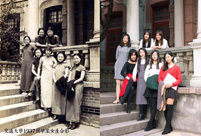 Now and then photos of Shanghai Jiaotong University
Now and then photos of Shanghai Jiaotong University Is this what air travel will look like in 2050?
Is this what air travel will look like in 2050?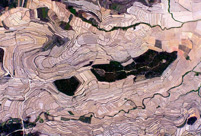 Aerial view of watermelon terraces in S China's Baise
Aerial view of watermelon terraces in S China's Baise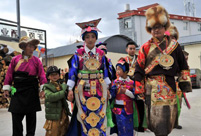 Traditional wedding of a post-80s Tibetan couple
Traditional wedding of a post-80s Tibetan couple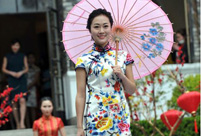 Models in cheongsams present classical oriental beauty
Models in cheongsams present classical oriental beauty Second commissioned C28A corvette made by China enters Algerian Navy
Second commissioned C28A corvette made by China enters Algerian Navy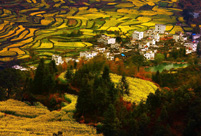 Intoxicating Wuyuan in spring
Intoxicating Wuyuan in spring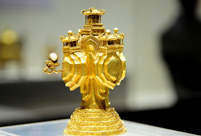 Gold and silver wares of Qing Dynasty exhibited in Shenyang Imperial Palace
Gold and silver wares of Qing Dynasty exhibited in Shenyang Imperial Palace Top 20 hottest women in the world in 2014
Top 20 hottest women in the world in 2014 Top 10 hardest languages to learn
Top 10 hardest languages to learn 10 Chinese female stars with most beautiful faces
10 Chinese female stars with most beautiful faces China’s Top 10 Unique Bridges, Highways and Roads
China’s Top 10 Unique Bridges, Highways and Roads Foreign investors to gain more access to China: minister
Foreign investors to gain more access to China: minister After two-child policy, sperm banks struggle to collect enough donations
After two-child policy, sperm banks struggle to collect enough donations Textbook piracy crackdown unlikely to work, greater awareness needed: experts
Textbook piracy crackdown unlikely to work, greater awareness needed: experts Overseas forces feed on disappearance cases to hype their rhetoric
Overseas forces feed on disappearance cases to hype their rhetoricDay|Week